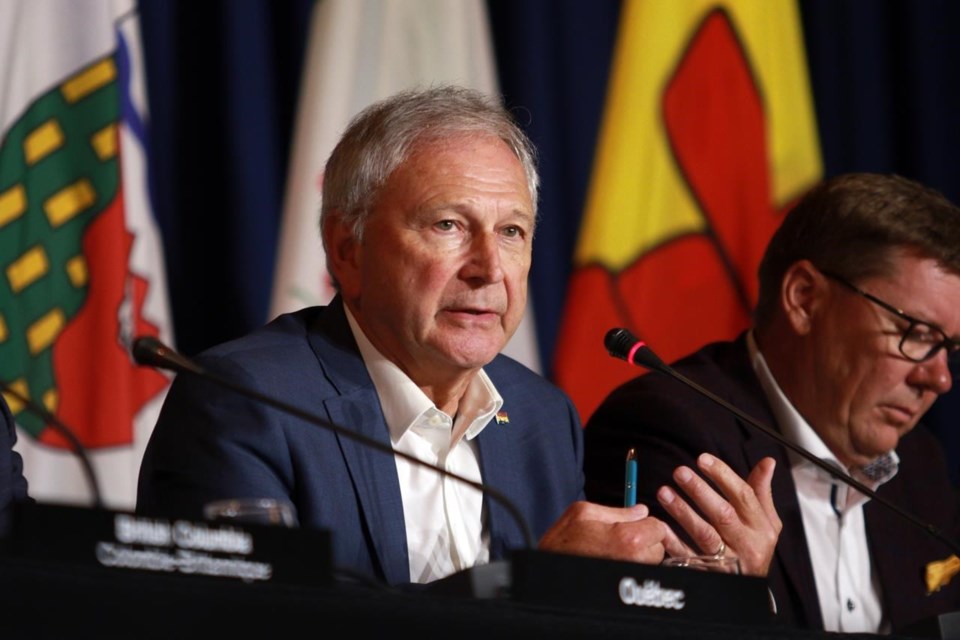FREDERICTON — New Brunswick's Court of Appeal has ruled that the August 2020 snap election call that won Premier Blaine Higgs a majority government was legal.
In a decision released Thursday, the court dismissed advocacy group Democracy Watch’s argument that the premier’s early election call was illegal because of the province’s fixed-date election law.
Writing for the three-judge panel, Justice Ernest Drapeau said there is no admissible evidence that the premier's decision to call a general election at that time came from "the pursuit of purely partisan electoral advantage."
Higgs triggered the vote two years ahead of New Brunswick's fixed election date because he said the province needed stability during the COVID-19 pandemic.
The premier called the election after opposition parties refused a proposal to support his minority government until the fixed election date in 2022 or until the end of the pandemic.
In October 2021, Court of Queen's Bench Justice Thomas Christie rejected Democracy Watch's bid to have snap elections declared illegal, but for different reasons than noted in the Appeal Court decision.
The Appeal Court disagreed with Christie's determination that the case should be dismissed on the grounds that the timing of an election is not a matter to be considered by the courts. Christie wrote at the time that in his view, "the matter borders on being considered frivolous."
Drapeau wrote in the decision that "most" of Democracy Watch's grounds of appeal are "well founded." However, the Court of Appeal determined that the argument should still be dismissed due to a lack of admissible evidence that Higgs called the election for "purely partisan" electoral advantage.
Duff Conacher, co-founder of Democracy Watch, said in a statement that the ruling confirms premiers cannot disregard fixed-date election laws for purely partisan reasons.
“Democracy Watch believes there was enough evidence for the Court of Appeal to rule that Premier Higgs violated New Brunswick’s fixed election date law by calling the 2020 snap election at a time that favoured his party’s election chances, but the court concluded there was not enough evidence to prove that he did, or didn’t, call the election to favour the PC Party,” Conacher said.
This report by The Canadian Press was first published Dec. 9, 2022.
— By Lyndsay Armstrong in Halifax
---
This story was produced with the financial assistance of the Meta and Canadian Press ߣÄĚÉçÇř Fellowship.
The Canadian Press



